
Tick Tock

Tick Tock
We’re delighted to share the winners of this term’s City Writes Competition who will be reading their work alongside the fantastic, Emma Grae at 7pm on the 5th July, on Zoom. You can register to come along and listen to them here.
This term’s winners are:
Helen Ferguson for ‘My Grandmother’s Piano’, an extract from her translation memoir.

Helen Ferguson
Helen is a translator of Russian and German. Her first piece of writing was published in the Lighthouse Literary Journal. She completed The Novel Studio in 2020 and is now working on a translator memoir under the mentorship of Megan Bradbury.

Richard Hastings
Richard Hastings for ‘Jumble’, an extract from his novel-in-progress.
Richard had a successful career in TV (BBC, ITV, C4) before the City Novel Writing and Longer Works short course in summer 2021 inspired him to embark on a major life change. He left the television industry and returned to university (after a 31-year gap!) to take the First Novel MA at St. Mary’s University, London, graduating in Spring 2023 with distinction. Richard is currently working on the third draft of his first novel, which he is hoping to submit to literary agents (sometime!) in the Autumn.

Kate Henderson
Kate Henderson for her story ‘What Happened at Judith’s’.
Kate is an alumna of the Certificate in Novel Writing (now The Novel Studio) and Writers’ Workshop. Growing up in quiet streets in towns where nothing much happened, her writing likes to ask what might be going on unseen next door, or across the way, and casts an eye on the unexpected in the seemingly everyday. Her novel-in-progress, All We Have to Go On is set in a luxury retreat for the cryogenically frozen and follows an artist as she tries to remember who she is and comply with her rehabilitation in a world where she can’t be sure she’s safe.
Kate works in professional services and lives in Surrey with her partner and daughters.

Camille Poole
Camille Poole for her story, ‘Brown Male’.
Camille found her way to City Writes through the Introduction to Copywriting course. She works for a Milton Keynes’ based community charity whilst drafting her WIP, a new adult novel which explores themes of othering and generational curses.
Emily Shamma for ‘Kate’, an extract from her novel-in-progress,

Emily Shamma
Emily is a City periodical journalism and Novel Studio graduate. A former Vogue Talent Contest winner, she started her career as a fashion journalist, before moving into business journalism. Following this, Emily worked in the City, then as a Director at Tesco for seventeen years. But her passion has always been writing, and she now writes creatively for pleasure—alongside running her own business, navigating a hectic London family life, and stoking a serious restaurant, theatre and gallery addiction.
Lana Younis for an extract from her novel-in-progress, Play The Long Game.
Lana, a proud native of Yorkshire and coincidentally born on National Yorkshire Day, embarked on her writing journey during her rebellious teenage years. In 2022, she embraced her passion by enrolling on the Novel Writing and Longer Works course at City University. She swiftly joined The Novel Studio to explore the realms of literary dark humour. Her debut novel, Play The Long Game, serves as a testament to her love for writing unreliable narrators and morally ambiguous characters driven by their relentless pursuit of personal gain.

Lana Younis
These talented authors will all be reading their winning pieces on the 5th July over Z oom at 7pm. Register here to join them and hear from prize-winning alumna, Emma Grae. From revenge through carefully preserved mementos all the way to the casually observed affairs of the neighbours, City Writes Summer Event 2023 promises to have you on the edge of your seat. We can’t wait to see you there.

By Rebekah Latin-Rawstrone
We began with City Writes veteran and fantasy writer, Adam Zunker. An alumnus of An Approach to Creative Writing and Writers’ Workshop, Adam read an extract from his novel-in-progress, The Perfectation, (loosely) based on the experiences of his Viennese grandmother as a refugee. He is pitching it as ‘Amadeus, but with alchemists’ and we were lucky enough to hear a moment of drama as one woman and her daughter, long in hiding, were captured but not by those they were expecting. The audience was left on tenterhooks wondering quite what this moment would bring for the characters. Bring on the rest of the book!
Next we took a completely different turn. Though staying with fiction inspired by real life, Angel Witney, alumna of Novel Writing and Longer Works, took us into the waiting room as her character played ‘a never-ending game of tag with the present moment’, time bending out of proportion and distorting her sense of wellbeing. Her extract ‘The Waiting Room’ was an excruciating but eloquent account of how our minds can alter reality, whetting our appetites for more of this work-in-progress.
Grayson Anderson, Novel Studio graduate, author and poet (and another City Writes alumnus!), read for us next, taking us into the passionate and dangerous world of the extra-marital affair. Fast-paced and filled with deftly observed detail and dialogue, Grayson brought the initial fall out of an affair’s discovery to brilliant and gritty light. We can’t wait to find out more about ‘Wayne’s Night Out’, another extract from a longer piece the audience couldn’t wait to read.
Moving from one kind of love to another, we journeyed down nostalgia lane with Narrative Non-Fiction alumnus, Bruce O’Brien, next. Bruce’s story ‘The Eels of Wrath’ mixed memory, narrative and poetry to moving effect, giving us an account of an old couple who used to live in the East End of London. There were some definite signs of eyes being wiped in the Zoom windows of our audience. We hope to hear more of these stories soon.
From fiction to elegant non-fiction, we slipped into a different kind of elegy with Philipp Sandmann, another Narrative Non-Fiction alumnus, who read his article, ‘Germans No Longer Score Penalties and That’s a Problem Or: Why the Only Thing We’ve Got Left is Bloody Great bBread…’. There were so many comments in the chat through this piece, mostly worrying that Germany couldn’t really have similar problems to our own! Philipp joined us from Berlin and is busy working on a book for a UK audience about the modern German soul and the myth of German efficiency. Judging by the City Writes reception, he has a very ready audience waiting to read it.
Aaron Payne, a Writer’s Workshop alumnus, read for us next. Aaron gave us an extract from his novel-in-progress, Our Man in the Clouds, in which a disgruntled meteorologist tries, but fails, to stay out of the global tussle for climate control. His extract took us to a remembered journey to Provence in 2015 when the narrator and his colleague, Siobhan, visited Professor Merryweather to discuss the possibility of setting up a climate school. More about the sexual encounter between Tony and Siobhan than the disastrous visit with the Merryweathers, the extract had us hooked. Another novel to look out for.
After these fantastic competition winners, we had the joy of listening to Hannah Begbie read from the opening of her second, prize-winning novel, Blurred Lines (HarperCollins, 2020), which tackles the film industry’s darker truths and the difficulties of speaking out in a pre MeToo era. We followed Becky as she attempted to impress her boss with a gift of some expensive wine before a trip to Cannes. Once at his house, having always been encouraged just to come on in through the open door, she witnessed something she wished she hadn’t. Thankfully, this time, audience members could go right out and buy the novel to find out what happened next. You can do the same here!
Alumna of the Novel Studio, Hannah was very generous in her answers to questions and particularly eloquent on the importance of writing from the heart. She shared writing tips, emphasised the importance of maintaining your writing allies, and gave a sneaky insight into her next novel. 
You can hear the whole City Writes event and listen to the full Q&A with Hannah Begbie, by watching the video of the event HERE.
Don’t forget to look out for details of next term’s City Writes event and competition. Our guest writer next term will be the wonderful, Emma Grae whose debut novel, Be Guid tae yer Mammy (Unbound, 2021), won the Scots Book of the Year 2022.
By Rebekah Lattin-Rawstrone

This term’s winners will be taking us on a journey from a consultant’s waiting room, through two different explorations of love in London, a moment’s passion in a car, a kidnapping in a fantasy world, all the way through to a contemplation of the myth of German efficiency. There’s football, alcohol, sex, fighting, nostalgia and altered states of consciousness. What’s not to like?
The author biographies of these wonderful winning stories and extracts follow:
Grayson Anderson is a British born Jamaican author and poet. A graduate from City’s Novel Studio, Grayson was shortlisted for the Spread The Word emerging writers programme and long listed for the Book Edit Writers’ Prize. His catalogue of work contains songs, poetry, a science fiction trilogy, and an opinion-based non-fiction book relating to the idiosyncrasies of gender in society.

Grayson Anderson
Hailing from the East End of London, Bruce O’Brien is a fledgling but passionate writer. Having dabbled with minor success, Bruce enrolled on the Narrative Non-Fiction course, where he has found added confidence to pursue his love of writing. Colourful life experience provides a rich backdrop for Bruce’s writing. Despite such a tapestry, his story ‘The Eels of Wrath’ was discovered by digging around his roots, where he found a nostalgic yet topical socio-political love story.
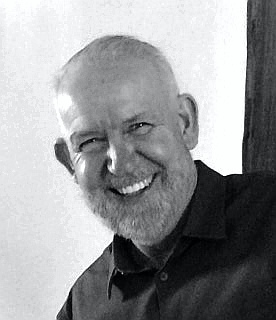
Bruce O’Brien
Aaron Payne is a new writer and alumnus of City University’s Writer’s
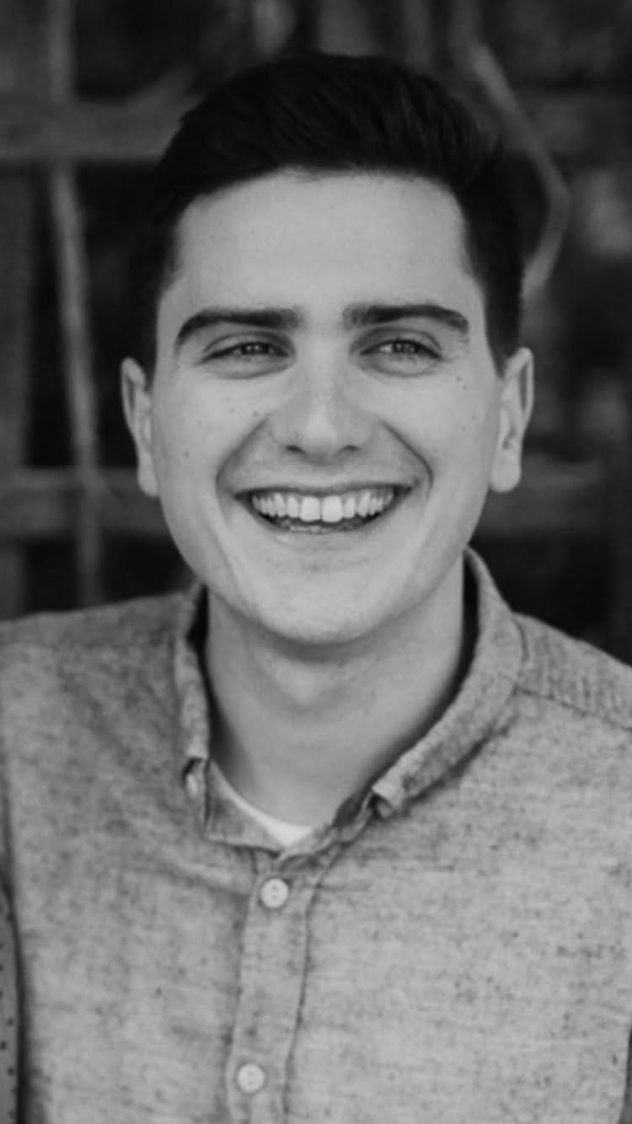
Aaron Payne
Workshop. He is writing a novel and a short story collection. Last year Cranked Anvil shortlisted his flash piece, ‘Postcard’ and Flash 500 is considering another, ‘Flowers’. In Aaron’s novel-in-progress, Our Man in the Clouds, the climate is collapsing and global powers tussle for control of the weather. A disgruntled meteorologist tries, but fails, to stay out of it.
Narrative Non-Fiction alumnus, Philipp Sandmann

is a political journalist and commentator working for Germany’s broadcaster RTL. Philipp is based in Berlin and reports on international topics such as the war in Ukraine. Having lived and studied in the UK for six years, Philipp learnt about the unique relationship between Germans and Brits. He is working on a book for a UK audience about the modern German soul and the myth of German efficiency.
Angel Witney, alumna of Novel Writing and Longer Works, is a writer, spoken word poet, actor and dancer based in London. Her writing is inspired by her personal experiences, looking particularly at topics like mental health, sexuality, and relationships. As well as longer-form fiction, Angel writes poetry and performs her pieces at open mic events. She is also an actor with professional credits in TV and film such as ‘In Bruges’, ‘Atonement’ and ‘Poirot’.
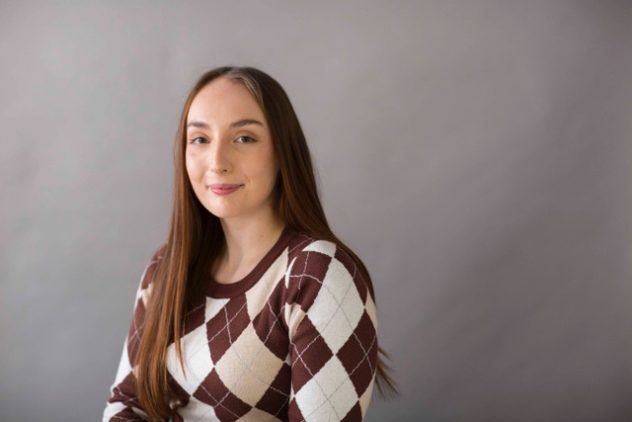
Angel Witney
Adam Zunker’s background is in journalism and politics and he’s had many articles published in national newspapers. He lives in London with his wife and daughter, though he is also fighting a losing battle restoring a thatched cottage in Dorset. His historical fantasy, The Perfectation, is (very loosely) based on the experiences of his Viennese grandmother as a refugee. Adam is an alumnus of An Approach to Creative Writing and the Writers’ Workshop.
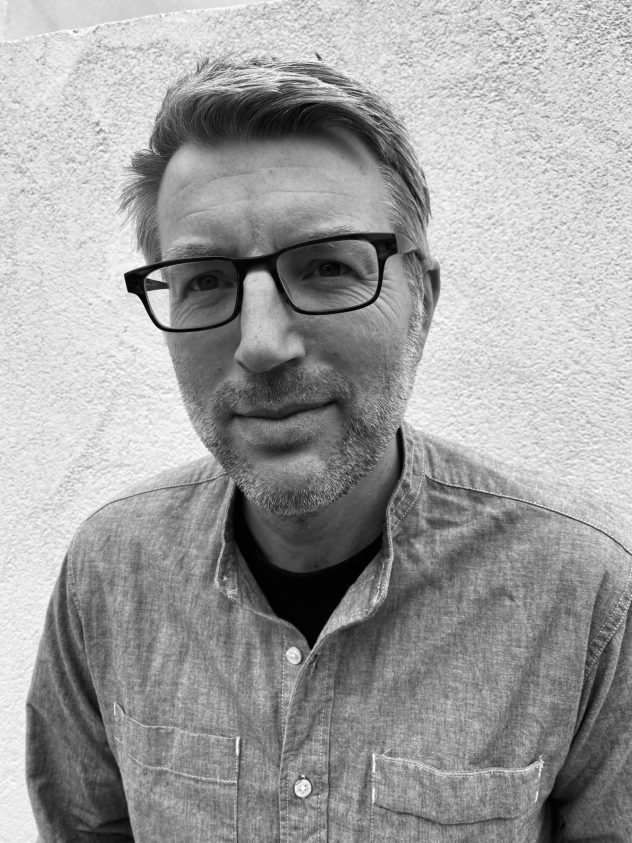
Adam Zunker
For your chance to hear these exciting emerging authors alongside the award-winning Hannah Begbie, just register for the City Writes Spring 2023 event here. It’s at 7pm on the 29th March and we can’t wait to see you there.
Novel Studio alumni news: Award-winning author Deepa Anappara will publish Letters to a Writer of Colour later this year. Edited with Taymour Soomro, it’s a collection of essays on fiction, race, and culture. Deepa has also recently joined the MA Creative Writing teaching team at City where she teaches Literary Journalism. There will be a launch for the book at City on March 13th. It’s free but you’ll need to register HERE.
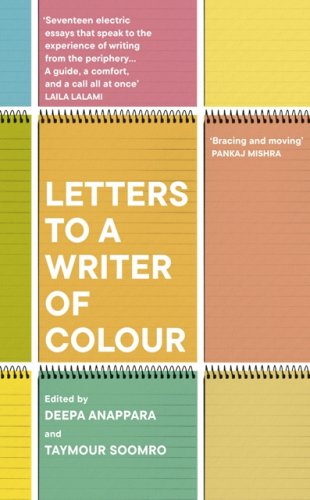
Letters to a Writer of Colour, edited by Deepa Anappara
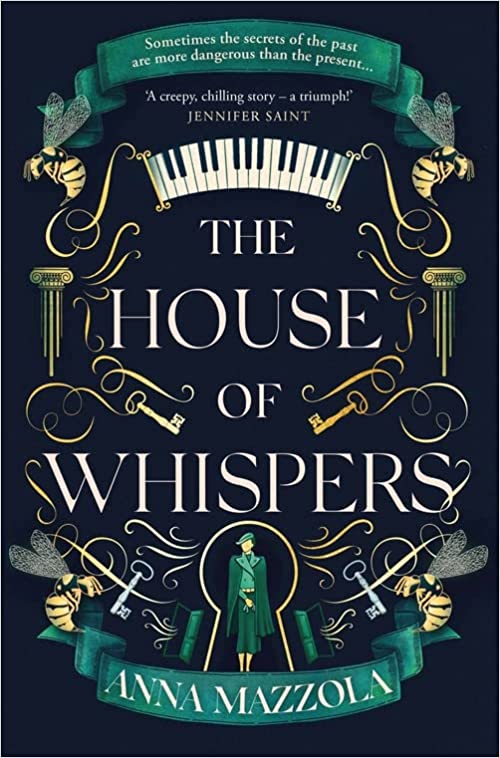
The House of Whispers, Anna Mazzola’s new novel
Anna Mazzola’s new historical thriller, The House of Whispers, will launch in March 2023. Ian Rankin has described Anna’s work as ‘Historical fiction with a fantastical twist, done with verve and skill’.
Janet Philips has published her debut book, Great Literary Friendships, with Bodleian Library, described by Publisher’s Weekly as a ‘fun spin on literary analysis’.
Rachel Mann has published her short story, The Things We Grew, with Passengers Journal. She has also published a column in the Rumpus called Things I Wish I Could Workshop other than my Novel.
Katy Darby’s Writers’ Workshop and Short Story Writing students continue to shine. Emma Guinness (Grae) has won Scots book of the Year 2022 for her novel Be Guid Tae Yer Mammy. Her second novel, The tongue she speaks — 15k of which was workshopped on her City course — was published last year with Luath Press. Sue Hann has a publishing deal with Neem Tree Press for a non-fiction book due out in 2025. Kate Gilby Smith has published two middle-grade children’s books with Hachette since taking the course in 2017, the first was The Astonishing Future of Alex Nobody and the second is Olive Jones and the Memory Thief, which came out in June 2022.

Olive Jones and the Memory Thief by Kate Gilby Smith
Joe Gallard has won the Ilkley International 8x8x8 playwriting competition. His play, This is Not a Drill, will be performed at the Ilkley Playhouse this April. Tickets available here. Helen Harjak was shortlisted for the 2022 Willesden Herald Short Story Prize. Former Times literary editor Erica Wagner will publish a new book, The Vocal + Fiction Awards Anthology, with Unbound in February 2023. The anthology is a collection of stories chosen from over 13,000 entries submitted to the Vocal+ Fiction Awards. Roly Grant’s 500 word story ‘Dust’ was the Richmond borough winner in Spread the Word’s ‘City of Stories’ anthology, published in June 2022.
Martin Ouvry’s Novel Writing and Longer Works’ alumnus Conor Sneyd has published his debut novel, Future Fish, with Lightning Books. You can read more about Conor’s path to publication on our blog here. Two of Martin’s other students, Angelita Bradney and Kate Vine, have been taken on by top literaryn agents — Catherine Cho at Paper Literary, and Johnson & Alcock, respectively.
2023 looks like being a great year for Peter Forbes’ Narrative Non Fiction alumni. Dee Peyok brought her pitch for a book about Cambodian rock music in the 1960s to the

Aniefiok Ekpoudom
course back in 2013. The book, Away from Beloved Lover, was published by Granta in January, to rave reviews. More recent alumni include Claire Martin’s (2021) Heirs of Ambition, a history of the Boleyn family before they became famous, which will be published by The History Press; and Aniefiok Ekpoudom’s (2015) Where We Come From: How Grime and Rap gave voice to a generation is due from Faber in August. In other news, Alice Kent has been longlisted for the Observer/Burgess Prize for Arts Journalism 2023.
The Novel Studio, our flagship year-long course for aspiring novelists, has opened for applications. For more details on the course and how to apply follow the link to our home page. To find out more about our extensive list of published alumni, take a look here.
If you want to talk to me in person about the Novel Studio or any other writing short course, I’ll be at the virtual Open Evening on 28 March. Sign up HERE.
City Writes
Our termly writing competition open to all writing short course students, past and present, is seeking submissions for its spring event. This term’s guest alumna will be award-winning author Hannah Begbie, author of two Mother and Blurred Lines, both published by HarperCollins. For your chance to join Hannah on the virtual stage, you need only send in your best 1,000 words of creative fiction or nonfiction (no young children’s fiction or poetry please) by midnight on March 3rd to rebekah.lattin-rawstrone.2@city.ac.uk . You can find full submission details here.
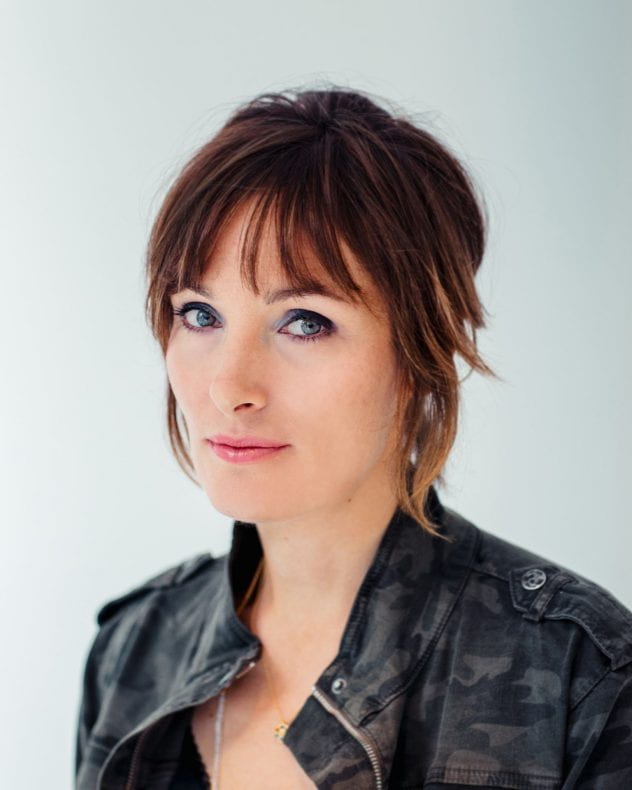
Hannah Begbie
Or just come along to hear some fantastic new writing on the night itself, 29th March. It’s all on Zoom and you can register here.
Scholarships
We continue to offer a fully funded place for a young adult (18-25) from an underrepresented background and/or facing financial difficulty on our Writing for Social Impact course. To apply, please contact the tutor Ciaran Thapar explaining why you’d like to attend. This course is now offered monthly to reflect the increased demand.
Please see below for more information on our Novel Studio scholarship.
Pete Austin and Anna Tsekouras, aka Anon agency, have hit the ground running on our new Branding 101 course for small businesses, creatives, entrepreneurs or anyone who wants to know more about how to create and foster their own brand. Feedback so far has been very positive with one student describing it as ‘the perfect blend of foundational theory and tangible takeaways.’
Holly Rigby joins the teaching team as Thursday night’s Narrative Non Fiction tutor. A former student on Peter Forbes’ course, she is a passionate advocate for the course and a brilliant writer and teacher in her own right. Holly worked as an English teacher in inner London schools for almost a decade, and is currently working on a book about the UK education system, published by Repeater Books in early 2024. Welcome, Holly!
Writing for Social Impact tutor, author and youth worker Ciaran Thapar has launched his own newsletter, ALL CITY, through Substack. Pitched as the ‘diary of a youth worker, with the pen of an author’, the newsletter will be a weekly dive into the challenges of inner city youth work and education. You can sign up and find out more here.
Anna Wilson is now teaching our Writing the Memoir course. Most of Anna’s books have been for children and teens, but more recently she has turned her hand to writing for adults. Her memoir A Place for Everything – my mother, autism and me has been reviewed as “a seminal work in this area” by the world expert in autism in women, Professor Tony Attwood. Welcome back, Anna!
Paris writing retreat, 12-16 April 2023. Former Novel Studio tutor and award-winning author Dr Emma Claire Sweeney and literary agent Jonathan Ruppin will host five days of mentoring and group writing sessions in a stunning private residence a short walk from the Eiffel Tower. Planning and follow-up sessions on Zoom. Quote CITY10 for 10% discount for bookings made by 13th March 2023.

Paris Writing Retreat
We wanted to say a huge thank you to Harriet Tyce. Harriet has funded and supported our Novel Studio scholarship for the past four years. A former barrister and Novel Studio alumna, Harriet is now a Sunday Times best-selling crime novelist. Her three novels, all published by Wildfire, have been runaway successes and her reputation as a leading crime writer is now firmly established. We have been so lucky to have Harriet’s backing for the Novel Studio, not only through the scholarship program — a program she initiated — but also through her ongoing mentoring support for the scholarship recipients and her generous introductions to the annual showcase. We very much hope to keep the scholarship alive — so do watch this space for more on this — but in the meantime, thank you so much, Harriet!
That’s all for this term. Congratulations and thanks to all our wonderful students and tutors.
To find out more about all our creative writing short courses visit our home page HERE.
And for more on all City’s short courses, look HERE.
Nathaniel Ashley took City’s Short Story Writing course, led by Katy Darby. As he puts it ‘I had tried numerous times to write a novel, and had often found myself developing ideas for sequels in my head long before I got anywhere near finishing the book. The short story course gave me the opportunity to create a finished piece of work, and gave me a better sense of story structure.’
‘Katy gave us exercises that really helped us experiment with a variety of different formats, all the while building up the skills that would help write a completed short story. It was also lovely to meet a group of like-minded people, and get more comfortable giving and receiving feedback.
‘The course made me much more confident showing my work to other people. For instance, I submitted an extract from my short story to the City Writes competition, and was lucky enough to win. This was the first time I ever read my creative writing to an audience, and it gave me
Nathaniel Ashley
a huge boost.’
Nathaniel thinks these kind of courses are really important in a writer’s evolution. ‘They’re so useful… Not only do they improve your writing skills, but they also broaden your understanding of the wider publishing industry and how to build a career in it.’ His advice to others starting out on their writing journeys? ‘Don’t be afraid to show others your work. It will only make you a better writer.’
Nathaniel works as a freelance journalist and can be found on twitter @NateAshley10
David Thornton took City’s Immigration and Asylum Law short course with Nasreen Choudhury. He was attracted to the course as he already worked in this field and ‘wanted a broader knowledge than I could acquire in my work. I also wanted to be able to explain to others.
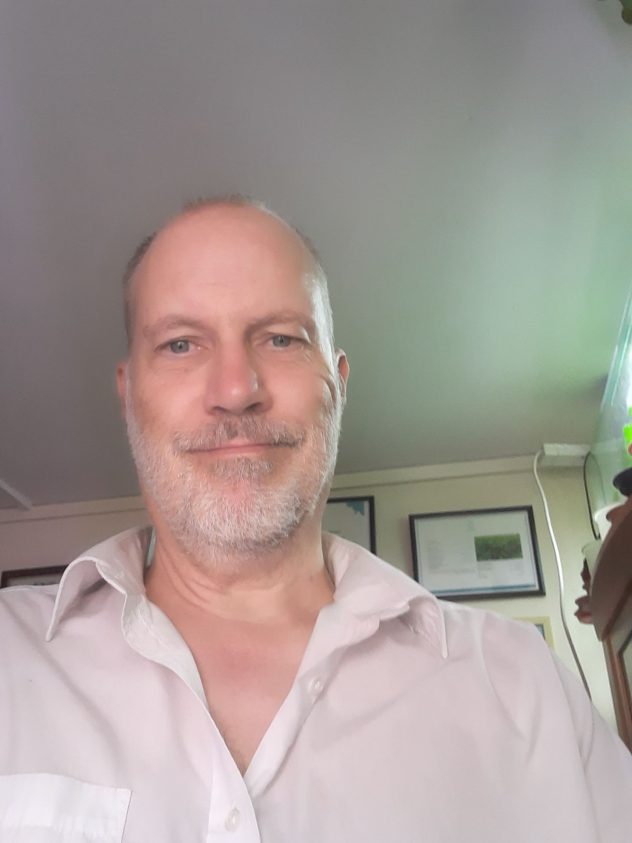
David Thornton
‘The course gave us the opportunity to ask questions as we went along. The tutor took time to answer our questions…My knowledge and understanding of this topic was greatly developed with instruction on how to self-learn in this field in future.’
David says the course has had a very positive impact on his life: ‘I am much happier and motivated at work and have received praise for my knowledge and diligence recently. I learned what I don’t want to do career-wise and was set on a future quest for knowledge by my tutor who sign posted me to my next steps.’
Abimbola Fashola was a student on City’s Writing for Children short course in 2020 (then taught by Sophia Bennett, now by Bryony Pearce). ‘I was attracted to this course because it was in the evening, which worked for me as I am working full time,’ says Abimbola. ‘I also liked that it was a short course and the price was affordable.’
‘The course was incredibly helpful as it taught me the importance of things like “Voice” and “Showing and Telling”. We also did peer feedback which was incredibly useful.’
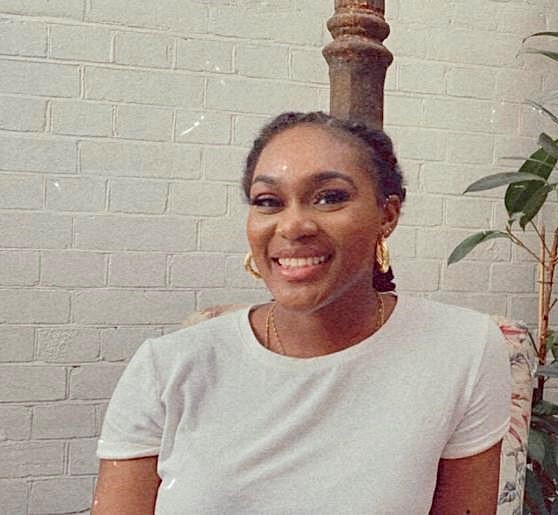
Abimbola Fashola
The course had a big impact on Abimbola’s writing. ‘It gave me the confidence to start my manuscript and I worked on the manuscript whilst on the course.’ Since leaving the course she has been chosen as one of the seven mentees on 2021/2022 Megaphone Writer Development Scheme and was commended for the 2022 FAB Prize. Most recently signed Abimbola has signed with Ash Literary agency and is currently working on her first book. As Abimbola puts it ‘Courses like this are extremely important, especially for writers who are brand new to novel writing.’ Her advice for anyone starting out writing for children? ‘It is difficult working full time and writing so it is important to set time aside to work on your manuscript even if it is a couple of hours on a Saturday. I would also advise new writers to apply for development schemes such as Megaphone or All Stories as they give new writers invaluable time and support.
Jazz Lintott took City’s Screenwriting: First Steps short course with Maeve Murphy in 2021. Jazz says ‘The course was invaluable to me. It helped me structure my idea the correct way, giving it tension and a heartbeat. It has since been aired on TV and we have just finished writing the play for the next stage of this journey. That’s the final step before converting it into a feature film!’

Jazz Lintott
Jazz’s short film, Going for Gold, was broadcast on London Live in 2022 and has appeared at various film festivals. The film follows three imagined conversations based on the career of Frankie Lucas, a black British Boxer from 1970s London. Jazz is now writing a longer screenplay using tools from the work he did on the course. Speaking of his tutor, he says ‘Maeve’s leadership was thorough and informative and she was always available for advice.’
Justine Solomons is the founder of digital publishing network Byte the Book. She started studying at City because she wanted to try and improve her writing skills. She was also interested in getting involved in the publishing industry. ‘I thought that if I did a course at City – which has an excellent reputation – it might help me make useful contacts.’
‘The first course I took was Novel Writing and Longer Works, which got me started on a draft of a novel. I then attended several other short courses just one night a week, which helped me finish a draft of my novel. I eventually applied to The Novel Studio, an intensive year-long programme for aspiring novelists. It was there I learned to redraft my novel.
‘In total I studied at City for three years. The courses were great, the teaching excellent and the standard of my fellow students was particularly high. I loved working with them all and still retain the strong friendships I made during my year on The Novel Studio.
‘City was a fantastic experience for me. Not only did it help me improve my writing, but I met some great people and got inspired by the courses to get more involved in the publishing industry… After working on the end-of-term reading event for The Novel Studio, I had the idea to set up Byte the Book. When asked, I always say Byte was born at City!

Justine Solomons
Justine originally set up Byte the Book to help her fellow students get published and also for them to make connections in the publishing world. She has developed the business into an an established membership organization now with 400 members, 5000 subscribers, and three main aims: to help authors get published; to educate publishers and authors on technology; and to connect people within publishing and to other industries. She continues to be in touch with her fellow coursemates, some of whom have guest blogged for Byte, or written articles and book reviews on the site. Many more attend their vibrant events programme. You can find out more about Byte the Book on their site, or email justine@bytethebook.com.
Inspired? See where a short course could take you. Visit our website for full details of all our courses. Or come along to our Open Evening in March where you can take a free taster course, or talk to one of our friendly coordinators about anything from computing, business and creative industries to languages or writing courses.
By Rebekah Lattin-Rawstrone
Running since April 2016, it is a huge privilege to be involved in the fantastic showcase event for City’s Short Creative Writing Courses, City Writes. This term’s event was no exception. Held over Zoom on Thursday 7th July (our ears tuned briefly away from the politics of the day), City Writes Summer 2022 not only had two brilliant published alumni from the same Novel Studio cohort, Attiya Khan and Simon Culleton, it also made space for some wonderful new writing coming from the competition winners made up of current students and alumni. What a talented bunch!
We began with the competition winners. Jordan McGarry, Narrative Non-Fiction student kicked things off with a fantastic piece, ‘The First Spring’, about her recently deceased mother. The chat was filled with responses to her careful observations of grief and insightful turns of phrase. Her biography had told us she was planning to be braver with her work in 2022 and we hope this will mark the beginning of a habit as we all want to hear more of Jordan’s writing.
We headed in an entirely different direction next with a witty piece on community division, ‘We Didn’t Start the Fire’, written and read by Short Story Writing alumnus, Jonathan Gallard. Giving us two perspectives and navigating the complex origins of divisive tradition, this was a wonderful piece of writing.
We returned to grief with the next reader, Orsolya Kiss-Toth. A Writers’ Workshop alumna, Orsolya read an extract of her second novel, Nadi Leaves, in which the main character confronts the studio of her recently deceased father and ends up painting her grief into a self-portrait in a way that mimics her father’s artistic process to moving affect.
Three times winner of the City Writes competition and another Short Story Writing alumna, Su Yin Yap read for us next. She gave us a non-fiction piece, ‘Notes on Pregnancy’ the form of which was much appreciated in the chat. Moving from facts about pregnancy to a personal account of their emotional and physical effects, the piece viscerally remembered what it feels like to be pregnant.
Recent Novel Studio graduate Richard Bowyer then took us into the world of satire with an extract from his novel, The White House. A hilarious letter to the prime minister called ‘The Manton Ultimatum’ had us all giggling as we contemplated the idea of one village in Essex forming an independent state. Roger Rowntree was a favourite character of the Novel Studio 2021/2022 cohort and he proved a hit with this City Writes audience too.
Following Richard, we listened to our last competition winner and Short Story Writing alumna, Lia Martin read her story about lost love, ‘Church Bells’. Such a sharp, witty, and painfully moving account of trying to process the end of a relationship. We can’t wait to read what Lia writes next.
The end of Lia’s piece marked a move into the second half of the City Writes event as we heard from alumni Attiya Khan and Simon Culleton. Both writers published their debuts in 2021 with exciting independent publishers. We heard two short readings and then moved into a Q&A.
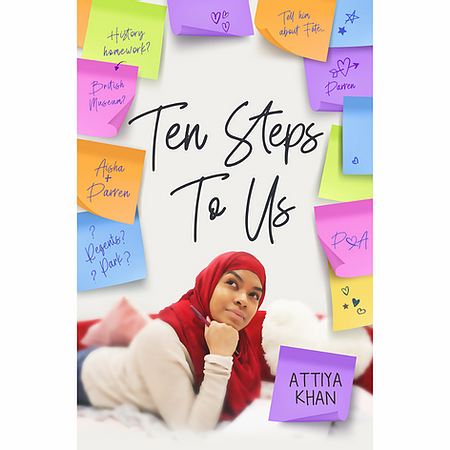
Attiya Khan’s debut novel Ten Steps To Us
Attiya’s debut, Ten Steps to Us, is a Young Adult novel that readers have described as ‘the perfect teen romance that covers religion, romance and diversity’. She read the scene in which devout, hijab wearing, Aisha is saved from Islamophobic bullying at a bus stop by the handsome non-Muslim, Darren. Where would this encounter lead? Published by Hashtag Blak, this is a story you’re going to need to buy to get the whole story.

Simon Culleton’s debut novel Shadows of Fathers
Simon Culleton then read from his debut, Shadows of Fathers, published by Stairwell Books, about one father’s fight to stay close to his children in a journey across geographical, cultural and emotional borders. He took us into a difficult conversation with his children about where he had been and why he didn’t live with Mummy anymore. Had the children missed him? Why didn’t Mummy and Daddy get on anymore? When he said Mummy and Daddy got on the way that a cat and a dog did, things got complicated… Funny, poignant and moving, it was a great introduction to the complexities of the novel.
The Q&A explored inspirations, from Attiya’s desire to see Muslim young women represented in fiction in realistic, non-Islamophobic ways, to Simon’s need to show the father’s perspective in divorce proceedings. We looked at their publishing journeys from the courses they took to the agents that rejected them to the publishers that championed them. We explored what they had enjoyed most about getting their work into the public domain, what they were working on now and what their writing routines were like. Both Attiya and Simon had some fantastic tips for writers and spoke of how important it was to follow your passion in your work.
You can hear the full Q&A and all of the readings by watching a recording of the event here.
It was an inspiring night and I can’t wait for the next City Writes when we’ll be joined by the amazing writer and another Novel Studio alumna, Elizabeth Chakrabarty whose debut novel, Lessons in Love and Other Crimes, published by The Indigo Press in 2021, was longlisted for the Desmond Elliott Prize 2022. Look out for competition and event dates coming soon to this blog.
By Rebekah Lattin-Rawstrone
We’re delighted to announce the winners of this term’s competition who will be reading their winning entries alongside debut author, Michael Mann at this term’s virtual event on Wednesday, March 30th at 7pm. Register now to join them
This term’s winners (in alphabetical order) are:

James Baxter
James Baxter is a long-term resident of Hackney and has been London-based since graduating from the LSE in the early 90s’. His career has been spent in the media and film sectors, including a 15-year stint as a journalist and magazine editor. James founded the PR consultancy JBM in 2010 and the film production company Mean Time Films in 2012. He is currently writing his debut short story collection. He is an alumnus of the Short Story Writing course. He will be reading an extract from ‘The Drop’.
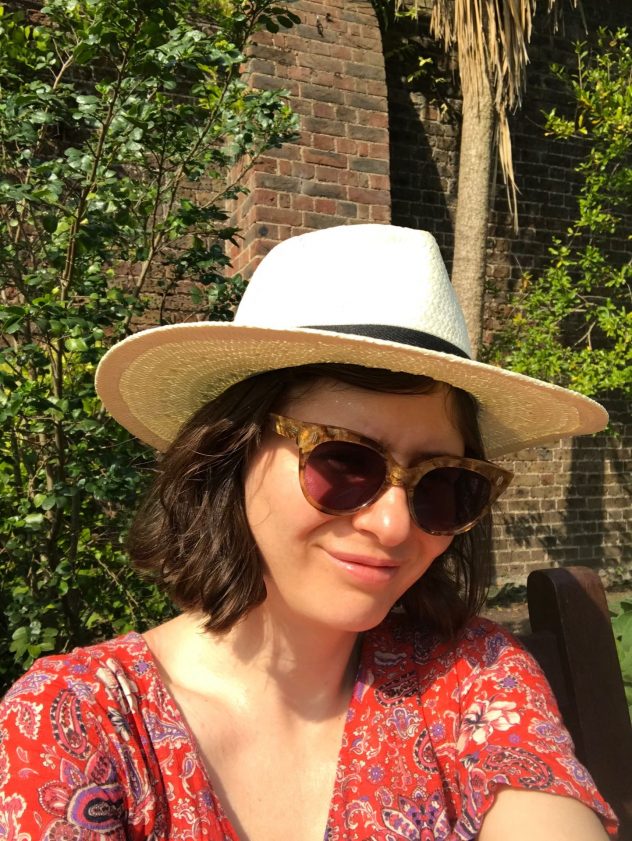
Emma Bielecki
Emma Bielecki, a Narrative Non-Fiction student, is a cultural historian who splits her time between London and nineteenth-century France. She has written about things that interest her (Bob Dylan, French Belle Epoque crimes serials, pet cemeteries) for outlets such as The Junket and The Conversation, as well as in fanzine form (at www.misfitsisters.com). Emma will be reading her nonfiction short, ‘Eh-ALL-ing’.

Stephanie Donowho
A student of Novel Writing and Longer Works, Stephanie Donowho is from Austin, Texas, where she worked as a video editor before moving to London in 2017 to pursue a Masters in Shakespeare Studies at the Globe theatre. She has acted in over a dozen plays, co-founded a theatre company, and currently works in financial services in London. Her work was published in Mslexia‘s 2021 anthology Best Women’s Short Fiction as a runner-up in the Flash Fiction competition. She will be reading ‘Once a daughter of Eve’.

Sini Downing
Sini Downing (Short Story Writing and Writers’ Workshop alumna) often finds her international experiences worming their way into her creative writing. The novel, from which her excerpt, ‘The Stink of Money’ is taken, and from which she will read at City Writes, was inspired by an intense 19 months living in downtown Baltimore. Now based in London, she is Head of Studio at a production company specialising in character performances for video games. She is currently seeking representation.

Alison Halsey
Alison Halsey is a fiction writer and a former financial services professional, with a career lasting over 40 years. She has also served in many roles supporting charities with a focus on young people with learning disabilities. A student of An Approach to Creative Writing, Alison is currently editing her first novel Minta Gets Everything Wrong, for which she feels she has far too much personal research material, resulting in an elongated editing process. She will be reading an extract from this novel.

Adam Zunker
Adam Zunker has taken several short courses in creative writing at City University and is working on his first novel, a fantasy story about death, faith and hallucinogenic frogs from which he will be reading an extract for City Writes. He has spent far too many years working in politics and journalism, though both have probably provided some grounding in creative writing. He lives in London with his wife and daughter.
These fantastic authors will take you on a journey of frog-licking, London exploring, drug dealing, funeral attending (with chicken), feminist Bible reading, healing wonder. Reading alongside debut author, Michael Mann whose middle grade novel, Ghostcloud, set in the smoky underworld beneath Battersea Power Station, is causing quite a stir, this will be an unmissable event. Sign up here now! We’ll look forward to seeing you there!
Novel Studio alumna and tutor, Kiare Ladner, published her brilliant debut novel, Nightshift, in February 2021. Novel Studio Course Director, Emily Pedder, caught up with her to find out more about the book and her path to publication.
EP: ‘Your debut novel is set in a pre-pandemic London, in the nineties. Reading it now feels like entering a different country. How do you imagine London will recover in the years to come?’
KL: ‘London has so much kinetic urban energy. At its best, it’s a place where a person can have the freedom to be whoever they want to be (or are), and find others who are like them. What I hope change will bring is a city with more realistic rents for its workers. With affordable space for creative endeavours. With the arts right there, accessible, at the heart of it. A city revitalised by new ways of thinking in culture, economics and politics. An urban landscape that holds the thrill of the avant-garde alongside home gardens created to give nature refuge. A place that builds on the sense of community some have felt more keenly recently. And that always welcomes the immigrants we rely on. Even now, there’s a lot to appreciate about being here. The parks, the free art galleries, the brilliant hospitals, the possibilities for anonymity, the joys of simply wandering. . . When asked if I feel British or South African, my gut response is that I feel most like a Londoner.’
EP: ‘Meggie is a fascinating character, full of contradictions. She could so easily have been a passive character, with Sabine taking all the decisions, but it feels as if you’re showing us it’s Meggie who chooses what happens to her, and Meggie who has to deal with the consequences. Was this a deliberate choice from the beginning or did you need to consciously make her decisions more active?’
KL: ‘From the start, I was curious about the idea of wanting to escape the self, wanting to be other, and how far you can push it. During the writing process, I felt that Meggie was driven by this desire rather than acted upon. As a writer, I inhabited her in the way that an actor inhabits a character, and from there her decisions came intuitively. However there is one scene in the book in which she is less passive than I’d initially written her, thanks to an inspired suggestion from a beta reader. The changes were subtle but kept my narrative more in line with my vision for it. Beta readers are invaluable!’
EP: ‘Sabine is one of those characters I feel everyone will recognise. That sophisticated, aloof person we all secretly aspire to be. How important was it to you to interrogate the personas people create and what lies beneath?’
KL: ‘This disparity is perhaps what first drew me to writing. Fiction allows us to investigate and express a less commonly portrayed sense of what lies beneath exteriors and dominant narratives. So I’ll probably be interrogating it forever…’
EP: ‘Where does a story usually start for you? With a character? A line of dialogue? A ‘what if’ plot question? A feeling?’
KL: ‘For me, it tends to start with a conundrum. Something that causes an itch in my brain, some question or situation I keep fiddling with. So the beginning is fairly abstract. Then if I give it time and space, scribbling and thinking, it tends to attach itself to a voice, and from there the story builds.’
EP: ‘I love how your novel taps into that complicated question of identity, particularly for those who live far from their native country. As a South African whose made London your home, is that an experience you relate to?
KL: ‘Definitely. I have gained a lot from being a stranger in a country, and the freedom to find my own tribe. But there are also aspects to leaving your country of origin that are painful, complex and irresolvable. Much to keep grappling with, in part through writing, I guess.’
EP: ‘You’ve studied creative writing at many levels, from short courses at City right up to PhD at Aberystwyth. What’s been the most important thing you’ve gained from that study?’
KL: ‘I’ve had some excellent tuition over the years. But I’ve also learned so much through other student writers. Not only from their brilliant and inspiring work – which has shown me the range and versatility of fictional prose – but also from their work ethic: their perseverance, resilience and determination.’
EP: ‘Do you think creative writing can be taught?’
KL: ‘It certainly involves craft, and learning. And a course environment makes space for a particular quality of attention to the work. I like how George Saunders puts it when he says that even for those, “who don’t get something out there, the process is still a noble one – the process of trying to say something, of working through craft issues and the worldview issues and the ego issues – all of this is character-building and, God forbid, everything we do should have concrete career results. I’ve seen time and time again the way that the process of trying to say something dignifies and improves a person.”’
EP: ‘How are you finding teaching on the Novel Studio, a programme you took yourself?’
KL: ‘Years ago this course gave me an inroads to the nuts and bolts of writing a novel. Its structure was invaluable in maintaining momentum and providing a sense of progression. And some of the other writers’ novels had me in awe! Now, what I find most exciting is to see the growth of the students’ writing over the course of a year. How hard some of them work, and how much they can do and learn and change. Also, the ways they engage with each other’s texts, their generosity in terms of time, attention and encouragement, is very heartening.’
EP: ‘What are you reading right now?’
KL: ‘I always have lots on the go in different genres (poetry, short stories, biography, comfort-for-the-middle-of-the-night etc). I’ve just excitedly added Mary Ruefle’s lectures Madness, Rack and Honey to my pile. And the novel I’m reading is This Mournable Body by the wonderful Tsitsi Dangarembga.
EP: ‘What are you working on now?’
KL: ‘A new novel called Skylight. I dare say no more!’
Kiare’s short stories have been published in anthologies, journals, commissioned for radio and shortlisted in competitions, including the BBC National Short Story Award 2018. She won funding from David Higham towards an MA (Prose Writing) at the University of East Anglia, and then received further funding for a PhD (Creative Writing) at Aberystwyth University. She was given Curtis Brown’s HW Fisher Scholarship in 2018. Her debut novel, Nightshift, was published by Picador last month and is available to buy now.
For information on the Novel Studio and how to apply, visit City’s website.
For those who want to hear Kiare read from her novel, she will be the guest at our next City Writes on 1 April.
by Rebekah Lattin-Rawstrone
Temper those party blues by joining us on Zoom this Wednesday 9th December at 7pm for a fabulous evening of readings from competition winners and the brilliant Novel Studio alumna, Deepa Anappara whose debut novel, Djinn Patrol on the Purple Line, was a New York Times Editors’ Choice, a New York Times Notable Book, one of Washington Post’s Best Thrillers and Mystery Books, and one of Timemagazine’s 2020 must-reads. It won the Tata Literature Live! First Book Award for Fiction and was shortlisted for the JCB Prize for Literature 2020 and longlisted for the Women’s Prize and the Booker Prize.
You won’t want to miss out and can register here.
kind, delving intricately into the bliss and anxiety of being human. When she’s not writing she works in recruitment with a tech company, reads about social science and gender studies, cooks, walks in Victoria Park and plays piano. She’ll be reading her story ‘Fine.’
© 2024 City Short Courses
Theme by Anders Noren — Up ↑

Recent Comments